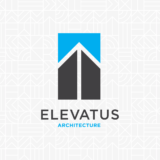Redefining Wellness: How Modern YMCAs Are Becoming Community Hubs

Imagine stepping into a space where fitness meets healthcare, where childcare intertwines with career development, and where mental health services sit just steps away from a yoga class. Modern YMCA facilities are no longer just places to lift weights or swim laps; they are becoming vibrant, community-centric hubs that address the multifaceted needs of the people they serve. This transformation is more than a shift in programming—it’s a thoughtful evolution of design, purpose, and collaboration.
A Holistic Approach to Wellness
The YMCA has always championed physical well-being, but today’s facilities are embracing a broader definition of health. From hosting healthcare clinics to offering mental health counseling, modern YMCAs are prioritizing whole-person wellness. These spaces empower individuals to improve not just their bodies but their minds and spirits as well. A mother might drop off her children at an early learning program while attending a nutrition workshop. A senior citizen could participate in an arthritis-friendly water aerobics class and then consult with a physical therapist on-site.
This shift recognizes that health and wellness aren’t one-size-fits-all. Communities are diverse, and so are their needs. By integrating services like preventive healthcare, workforce training, and family support programs, YMCAs are creating spaces where individuals of all ages and backgrounds can thrive.
The Power of Partnerships
Achieving this level of impact is no small feat. It requires a tapestry of partnerships woven with care and intention. Collaborating with hospitals, schools, nonprofits, and government agencies allows YMCAs to expand their reach and deepen their impact. These relationships make it possible to offer services like food assistance programs, career counseling, and literacy workshops—all within the same facility.
Take, for example, a YMCA in an underserved urban area that partners with a local healthcare provider to establish a clinic on-site. This clinic offers affordable vaccinations, health screenings, and chronic disease management, making essential care accessible to families who might otherwise go without.
For architects, designing a facility that accommodates such diverse services requires not only technical skill but also empathy and an open mind. It’s about listening—truly listening—to the needs of partners, stakeholders, and the community itself.
Designing for Complexity and Connection
Creating a modern YMCA is as much about understanding people as it is about designing buildings. These facilities must be flexible enough to host a career fair in the morning, a youth basketball league in the afternoon, and a community art class in the evening. They must be welcoming spaces that reflect the values of inclusivity and accessibility.
The design process often starts with community engagement. Architects and designers meet with local leaders, potential partners, and residents to understand their aspirations for the space. What services are most needed? What barriers currently exist? How can the design inspire connection and belonging?
From there, it’s a balancing act of form and function. The facility might feature open-concept areas that encourage collaboration, private rooms for sensitive services like counseling, and multipurpose spaces that adapt to changing community needs. Sustainability and natural light often play a central role, creating environments that feel healthy and uplifting.
A New Model of Wellness
This evolution of YMCA facilities speaks to a larger trend in architecture and community planning: a growing recognition that buildings can do more than serve a single purpose. They can foster relationships, break down barriers, and enhance lives.
For communities, the result is transformative. A single YMCA can become a cornerstone of well-being, offering opportunities to grow, heal, and connect. For architects and designers, the reward lies in knowing their work extends beyond walls and roofs—it shapes experiences and strengthens communities.
The Path Forward
As YMCAs continue to redefine what it means to be a wellness center, the opportunities for innovation are endless. The challenge is not just to meet the needs of today but to anticipate the possibilities of tomorrow. By listening deeply, collaborating widely, and designing thoughtfully, we can help create spaces where every individual feels seen, supported, and inspired.
Today’s YMCA facilities are more than a gym. They’re a testament to what’s possible when architecture, partnership, and purpose come together. They’re places where wellness meets community—and where every door leads to opportunity.
Your Partner in Transformative YMCA Design
At Elevatus, we are proud to be a leading design firm specializing in modern YMCA facilities that serve as vibrant community hubs. With extensive experience designing flexible, inclusive spaces that integrate services like healthcare, childcare, and education, we collaborate closely with stakeholders to create environments that inspire connection and promote well-being.
Let’s Design the Future of Community Together
Are you ready to transform your YMCA into a space that makes a lasting impact? Contact us today to explore how we can bring your vision to life. Together, we’ll design a place where wellness meets community, and every individual feels seen, supported, and inspired.
Ashlei Davis is Project Executive of Wellness at Elevatus. In her role, she leads the market’s business development efforts and works with clients to ensure their vision for their project is realized. She can be reached at adavis@elevatus.com.



